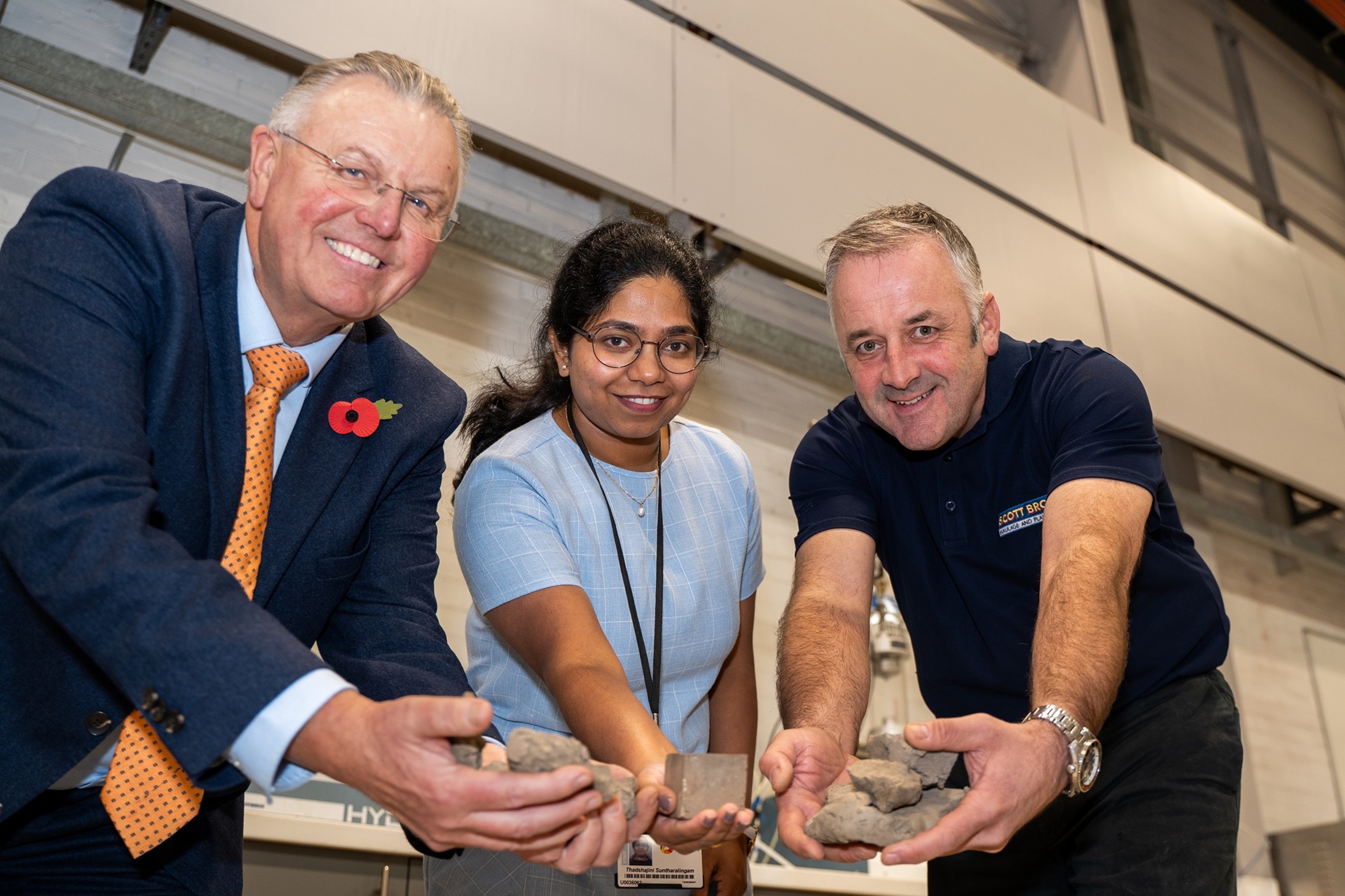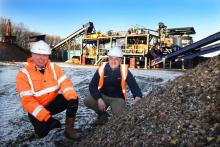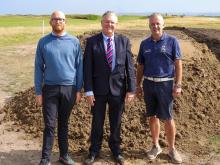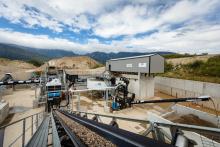
The Stockton-based company has been working for several years to find a practical use for the fine-grained clay by-product produced by its wash plants, which convert construction and excavation waste into high-quality sand and aggregate.
The project will examine ways of scaling up the brick-binding technology to lower production costs and ensure the process is commercially viable.
If the bricks can be mass produced, it could allow the construction industry to cut carbon emissions and improve sustainability through the greater use of recycled materials and resources.
Previously, Scott Bros’ prototype bricks have attracted interest from a major UK housebuilder and an Australian company specialising in recycled products.
The project is supported by Tees Valley Launchpad, a £6m collaborative research and development fund established by Innovate UK, part of UK Research and Innovation.
Scott Bros set up its laboratory in 2021 and employed Teesside University graduate Feysal Shifa as its recycling innovation engineer to perfect the binding technology. He also works on many projects to benefit the circular economy, including developing low-carbon concrete.
Feysal has already produced several prototype bricks to perfect the clay binding process, also known as ‘filter cake’, together. Currently, the material is virtually worthless and is used as pond lining clay or inert engineering fill.
He was also involved in the initial research into the filter cake, conducted by Teesside University, as part of a Knowledge Transfer Partnership designed to help businesses innovate through academic support.
Bob Borthwick, a director of Scott Bros, said: “We have spent several years perfecting the process of binding together what is effectively a waste material to create a brick that could have a major impact on the construction industry.
“We look forward to working closely with Teesside University as we seek to take this eco-friendly product to the next level – by ensuring it can be produced at a commercially viable scale.”
Dr David Hughes, Associate Dean (Research and Innovation) in Teesside University’s School of Computing, Engineering & Digital Technologies, said: “Having worked alongside Scott Bros to develop the prototype for this brick, we are delighted to be collaborating further as they seek to scale up production to a commercial standard.
“Teesside University is committed to research which delivers green and sustainable growth through the design of novel and disruptive technologies, and therefore, it is fantastic that this project has already proven so successful.
“By diverting waste products from landfill and simultaneously cutting carbon emissions, the development of this innovative new building product is destined to have a major impact on the future sustainability of the construction industry.”
The research is being carried out in partnership with Teesside University’s new £13.1m Net Zero Industry Innovation Centre, a key component of Tees Valley Combined Authority’s regional innovation strategy, designed to position Teesside at the heart of the UK’s green industrial revolution.








